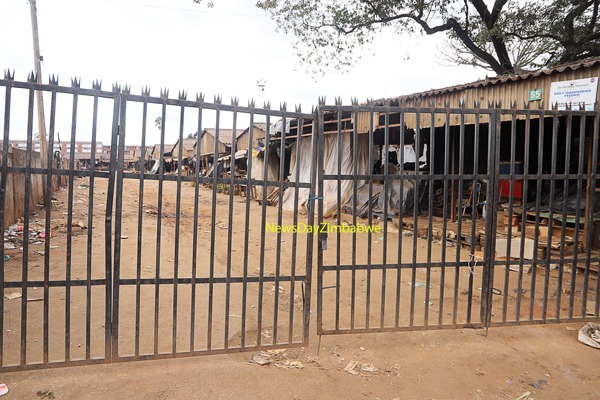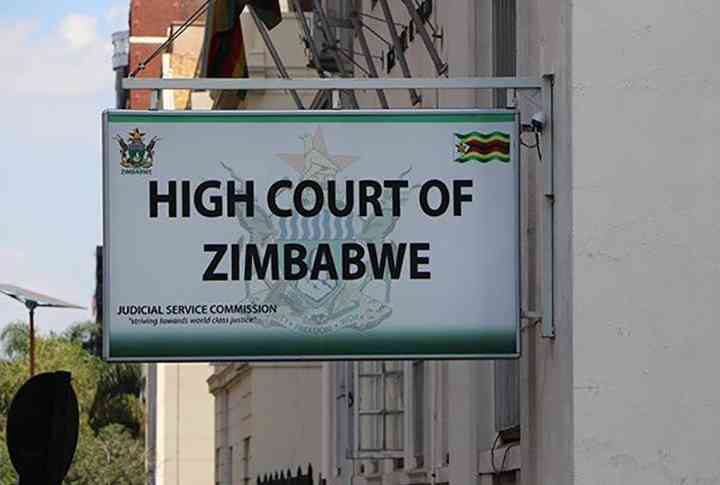
PUBLIC officials and health experts say President Emmerson Mnangagwa is likely to extend the lockdown after a surge in new coronavirus cases in the country, but urged him to let the economy operate at low hum to avoid a total collapse.
By Alfonce Mbizwo
Mnangangwa put Zimbabwe on a 21-day lockdown on March 30 after three cases were confirmed, but the number has since ballooned to 24, while around 15 000 Zimbabweans from COVID-infected countries flocked into the country to escape restrictive measures in those countries or were returning residents, some from hotspots such as the United States and the United Kingdom.
As of yesterday morning, Zimbabwe had only tested 1 299 people, but authorities this week said they would ramp up testing to 1 000 daily as the number of those testing positive rose. Health secretary Agnes Mahomva on Wednesday said government had targeted to test 33 000 people by April 30, about 0,2% of the population.
“COVID-19 has just began to attack Zimbabwe and the spike is beginning to show an upward trend, we have introduced a lockdown some two weeks ago but we are realising the pandemic is now more serious than the time we introduced lockdown,” Information secretary Ndavaningi Mangwana wrote on his Twitter handle yesterday, suggesting the lockdown could be extended.
However, Fortune Nyamande, the board chairperson of the Zimbabwe Association of Doctors for Human Rights, said the low testing levels limited the impact of the lockdown. “The purpose of the lockdown was mainly two-fold, firstly to reduce the number of new infections and thereby reduce the strain on the health system. Secondly, to ensure the health system gets prepared through expanding testing, isolation and treatment facilities across the country,” he told NewsDay Weekender. “We have not seen enough progress on the latter aspect. Lifting the lockdown without a back-up health infrastructure to deal with a possible surge of cases will be catastrophic. However, attention must be paid to allowing some economic activities that provide financial relief to the Zimbabwean people.”
Zimbabwe Hospital Doctors Association secretary-general Emmanuel Masosota said: “My personal opinion is that we should relax some of the regulations and continue with other measures. A balance of economics and public health benefit. People need money to buy food for their families, so they need to work and, at the same time, we should protect the people from the spread of the virus. An extension of the lockdown will help in surveillance and case finding (because) this is the period we need to actively look for the positive cases and reduce local transmission.” In a recent report seen by this paper, the Confederation of Zimbabwe Industries said about 82% of companies could only pay salaries for one month during the lockdown. “The implementation of the lockdown should take into consideration the underlying conditions in the economy and the limited fiscal leg-room to rescue industry. Looking at the scenarios in Europe, it shows that they have allowed production including that of non-essential goods to continue except in Italy and Spain.” The Employers Confederation of Zimbabwe (Emcoz) also wants the lockdown relaxed, but want tighter implementation of other measures.
“Our take is that it should be relaxed after the 21 days in terms of allowing businesses to operate, generate cash flows and be able to service their obligations to contractual or trade partners including labour,” Emcoz president Israel Marefu said. “This is, however, not to say that other strict rules of hygiene, social distancing and quarantine or isolation where it is warranted should be done away with because COVID-19 is still taking its toll on our citizens. Perhaps borrowing a leaf from the Tanzanian model, which comes highly recommended by the WHO [World Health Organisation], might assist in terms of reviewing and redirecting our model. This is because our economy is highly dominated by the informal sector and SMEs which survive from hand to mouth as they have little or no accumulated capital to fall back on in hard times like the ones we are experiencing right now.
- Chamisa under fire over US$120K donation
- Mavhunga puts DeMbare into Chibuku quarterfinals
- Pension funds bet on Cabora Bassa oilfields
- Councils defy govt fire tender directive
Keep Reading
“A model which allows businesses to operate, but with strict health and safety requirements for everyone will allow the economy to have some life and, therefore, sustain livelihoods and jobs.
Having the so-called non-essential service businesses closed longer than the 21 days will sound the death knell to most of those businesses as they may never recover going forward and this is detrimental to the economy. We need a win-win for both the economy and the health of the nation and I must admit it is not an easy decision for the leadership. However, we would not advocate for a total lifting of the lockdown, otherwise any benefits realised by effecting the lockdown in the first place might be lost.”
Retailers, who are allowed to operate for a fraction of their normal trading hours, will record losses of over US$1 billion, according to Denford Mutashu, the Confederation of Zimbabwe Retailers president, and the sector will require a rescue package.
“On the one hand, the idea of extending makes a good case from a public health perspective as it helps contain the rapid spread of the COVID-19 pandemic. However, the structure of our economy has left us in a quagmire, where more than 70% are not only employed in the informal sector, but live from hand to mouth and an extension will be more painful for them. It will be prudent to extend the lockdown period by at least two weeks, in view of the fewer number of people who have been tested. This will allow a rollout of a mass testing exercise to ascertain the critical areas of attention in the country,” Mutashu said.
“There is urgent need to come up with a ‘National COVID-19 Business Relief and Rescue Facility’, which is cross-sectoral and value chain-based. We are yet to engage government on that, but discussions have been held where, as an association, we presented the matter.” Labour unions urged government to “choose life” and prioritise the health of Zimbabweans.
“Zimbabweans are in a fix, we are between a rock and a hard surface. Without God’s intervention, we are likely to be a catastrophic example of how bad planning and poor leadership worsens the impact of COVID-19,” Zimbabwe Congress of Trade Unions president Peter Mutasa said.
“On the one hand, citizens are now aware of the dangers of allowing the virus to spread. Some have lost their relatives here and abroad. We have all seen how better equipped countries are being ravaged. We also take the World Health Organisation warnings seriously that Africa could be the epicentre in the weeks to come and that we should not lift the restrictive measures carelessly.” However, he said many Zimbabweans were already starving at home.
“The majority have no income streams during the lockdown. Unlike in other countries, the government has not come up with measures to alleviate the starvation. The measures announced are awfully inadequate and not inclusively crafted. Many workers have been dismissed and many are without salaries. Prices of goods have gone up beyond the reach of many. Daily, people are searching for mealie-meal, water, gas and other basic food items. People are literally scavenging.
It is, therefore, not an easy call to make. However, we must prioritise life and follow the advice given by experts otherwise we will worsen a bad situation. The government must make the right decisions.”
Added Japhet Moyo, the labour union’s secretary-general: “It is a catch-22 for all of us. Our numbers have not been raising sharply not because we are COVID-19-free, but because we have not been testing enough. If we relax the lockdown without increasing testing and not providing personal protective equipment, then the good work that we did in the past 21 days would be a waste. But because we have a big chunk of our society that is vulnerable, the continued lockdown would obviously be unpopular.
“But businesses are crying more than the bereaved because they are concerned about their balance sheets more than lives. The majority of them have failed to adequately protect their employees even as they continue working. Workers are literally sent to slaughter and further risking their families.”











